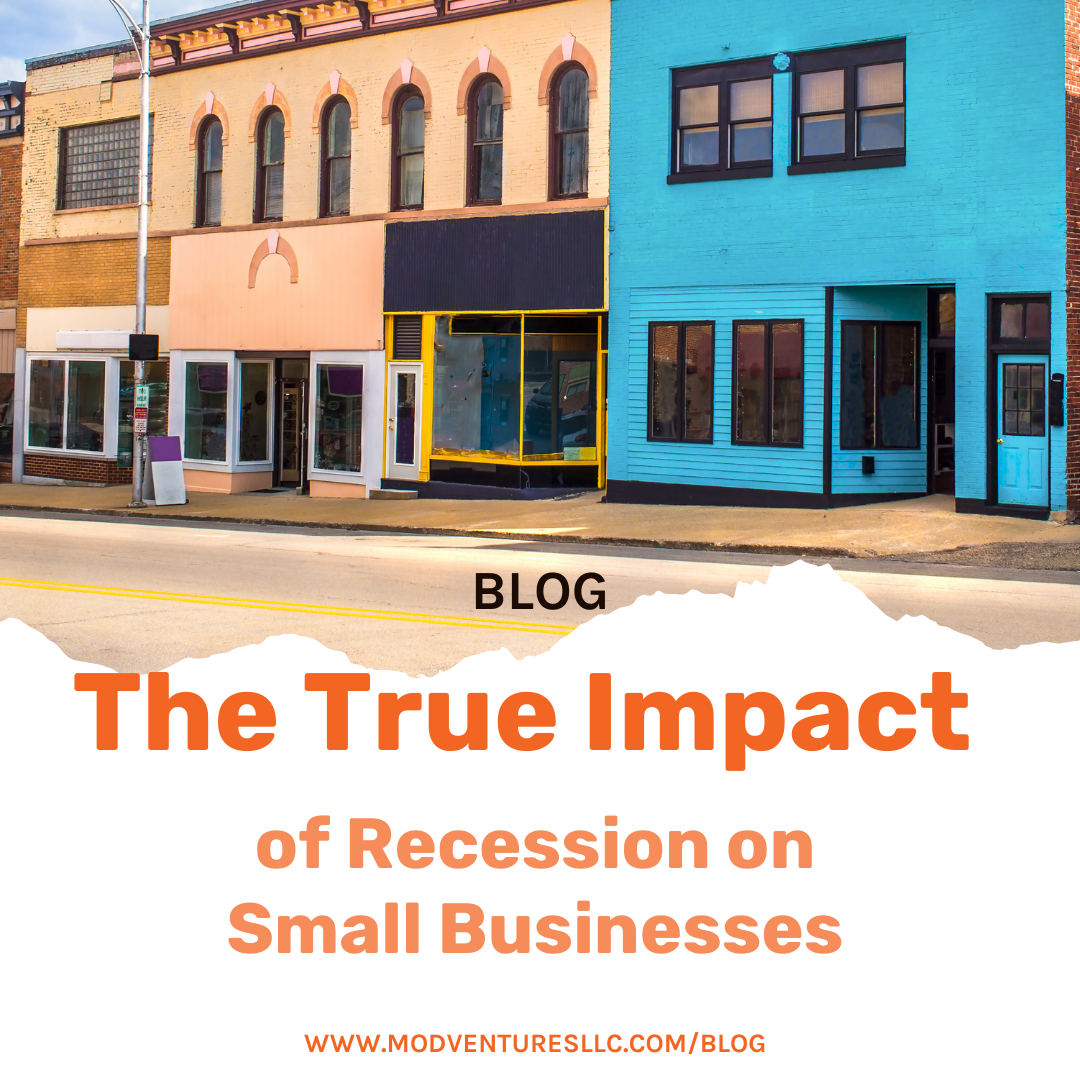By: Gabrielle Luoma CPA, CGMA
By: Gabrielle Luoma CPA, CGMA
Recessions are challenging economic periods that can significantly impact businesses of all sizes, but small businesses often feel the effects more acutely. From reduced consumer spending to tighter access to credit, the ripple effects of a recession can put immense pressure on small businesses, sometimes threatening their very survival.
Understanding the true impact of a recession can help small business owners prepare, adapt, and weather the storm more effectively.
Decline in Consumer Spending
One of the most immediate and significant impacts of a recession on small businesses is a drop in consumer spending. When the economy slows down, people tend to tighten their belts, cutting back on non-essential purchases. For small businesses, particularly those in retail, hospitality, and discretionary services, this can mean a sharp decline in sales.
The challenge is even greater for small businesses that rely heavily on local customers or those that offer luxury goods and services. Customers may opt to delay purchases, choose cheaper alternatives, or forego certain expenses altogether.
This drop in demand can lead to lower revenues, making it difficult for small businesses to cover their operating costs.
What to Do:Diversify your revenue streams by exploring online sales, subscription models, or alternative products and services that cater to essential needs. Having a range of options can help sustain your business even when consumer spending dips.
Tightened Access to Credit
During a recession, banks and financial institutions become more cautious about lending. This can lead to tighter credit conditions, with small businesses finding it harder to secure loans or lines of credit. This can be a significant obstacle for businesses that rely on borrowing to manage cash flow or invest in growth.
Without access to credit, small businesses may struggle to cover payroll, pay suppliers, or invest in new opportunities. The lack of funding can stifle innovation, limit expansion, and sometimes lead to closure if businesses can’t find alternative ways to maintain liquidity.
What to Do: Build a strong credit profile during stable economic times to improve your chances of securing financing during a downturn. Establishing a relationship with a local bank or credit union is also beneficial, as they may be more flexible and willing to work with you in tough times.
Supply Chain Disruptions
Recessions can disrupt supply chains, causing delays, shortages, and increased costs for raw materials and goods. Small businesses that rely on specific suppliers or global trade routes may face difficulties getting the products they need, potentially resulting in stock shortages and missed sales opportunities.
These disruptions can force small businesses to find alternative suppliers, often at a higher cost, further squeezing their margins. Businesses that cannot absorb these additional expenses or pass them on to customers may see a decline in profitability.
What to Do: Diversify your supplier base to reduce reliance on any single vendor. Additionally, consider keeping extra inventory on hand to buffer against potential disruptions. While this may increase short-term costs, it can help prevent supply issues that could harm your business during a recession.
Increased Competition
During economic downturns, competition often intensifies as businesses vie for a smaller pool of consumer spending. Larger companies, with more resources at their disposal, may lower prices to attract customers, putting smaller businesses under pressure to do the same.
However, slashing prices may not be sustainable for small businesses, leading to a difficult balancing act between remaining competitive and maintaining profitability.
What to Do: Focus on your unique value proposition and find ways to differentiate your products or services. Offering exceptional customer service, personalized experiences, or specialized products can help small businesses retain loyal customers even when larger competitors are lowering prices.
Reduced Investment in Growth
During a recession, small businesses often need to make difficult decisions about where to allocate their limited resources. Investments in growth, such as marketing, research and development, or new technology, might be put on hold in favor of maintaining essential operations.
While this may be necessary in the short term, it can stifle growth and hinder the business’s ability to bounce back once the economy improves.
What to Do: Reevaluate your budget and prioritize spending that drives immediate and measurable returns. Investing in digital marketing, for example, can be a cost-effective way to reach new customers without the high overhead of traditional advertising methods.
Look for low-cost solutions that can still yield high returns, and be ready to scale up when conditions improve.
Layoffs and Reduced Workforce
Labor is often one of the biggest expenses for small businesses, and during a recession, many companies are forced to cut costs by reducing their workforce.
Layoffs can help a business survive in the short term, but they can also lead to lower morale, reduced productivity, and loss of valuable talent. Additionally, customers may perceive layoffs as a sign of instability, which can further affect the business’s reputation and sales.
What to Do: Before resorting to layoffs, consider alternatives such as reducing hours, implementing temporary pay cuts, or offering voluntary unpaid leave. Maintaining open communication with employees about the situation can help preserve morale and loyalty, even during challenging times.
So, What is the True Impact of Recession on Small Businesses?
Recessions are undoubtedly difficult for small businesses, but with strategic planning and adaptability, they don’t have to spell disaster. Understanding the true impact of a recession can help business owners anticipate potential issues and take steps to mitigate them.
From diversifying revenue streams to managing cash flow more effectively, there are practical strategies that can help small businesses not only survive but emerge stronger from an economic downturn.
For more guidance on how to navigate your business through tough economic times, consider consulting with a financial expert who can offer tailored advice and support. Taking proactive measures now can significantly impact your business’s ability to withstand and recover from a recession.
If you want to learn more about how you can recession-proof your small business, get in touch with the MOD VENTURES LLC team today!
You May Also Love
CLOSE






